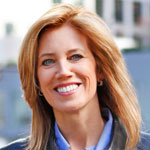![]() There’s been a lot of change to our industry as a result of health-care reform. We’re the largest manufacturer of nonsurgical orthopedic rehabilitation devices in the United States and among the largest globally, as measured by revenues. The medical-device tax, which levies a 2.3 percent tax on sales, is a small part. A lot of companies have addressed it by reducing head count. We’ve elected not to do that, but look instead at how we run our business. We’re looking at our processes, our corporate margins, our pricing, even the markets we pursue. A bigger effect of health-care reform is Medicare reimbursement, of which we do a fair amount. If Medicare says they’ll reimburse less for certain products, we have to find a way to address that.
There’s been a lot of change to our industry as a result of health-care reform. We’re the largest manufacturer of nonsurgical orthopedic rehabilitation devices in the United States and among the largest globally, as measured by revenues. The medical-device tax, which levies a 2.3 percent tax on sales, is a small part. A lot of companies have addressed it by reducing head count. We’ve elected not to do that, but look instead at how we run our business. We’re looking at our processes, our corporate margins, our pricing, even the markets we pursue. A bigger effect of health-care reform is Medicare reimbursement, of which we do a fair amount. If Medicare says they’ll reimburse less for certain products, we have to find a way to address that.
With the industry in flux, I’ve focused a lot of energy on coaching. Being a business leader in any industry, you have to constantly reinvent yourself. The environment is changing, the company is changing; how do you adapt? The same approach you took 10 years ago is not the same approach you can take today. So I work with the leadership of the company to help them adapt and reengage with shareholders, customers, and employees.
In order to adapt to change, you need the right talent. Achieving that isn’t just about recruiting externally, but looking internally at what you have. We’ve spent the past five years integrating 14 businesses under one, and in doing so, it would have been easy to overlook people with the skill sets we need. You need to look at employees—where they’ve been, what they’ve done. You’d be surprised. You find that employees have skills you never would have known about had you not asked the right questions. Then you have to develop and retain that talent, get it ready for the next generation of needs. As DJO pushes a global mind-set, I’ve focused on helping our 5,700 employees worldwide feel connected, even if they’re geographically removed.
I’ve developed my approach from things I learned in prior positions. I initially learned coaching and counseling when studying for the priesthood, then grounded that in business with senior positions at a number of companies: Charles Schwab, Genentech, PepsiCo, The Hertz Corporation, and McKesson. But, I think my HR philosophy was formed at PepsiCo, which promoted the idea that I was a businessperson first and an HR person second. You have to understand your business to be successful in HR. ![]()

